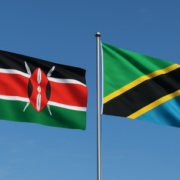- South Africa tops global fraud targets as International Fraud Week 2024 shines a light on AI-driven deception. SAS’ Faces of Fraud study revealed that South African consumers face the highest fraud risk globally, as businesses grapple with escalating threats, evolving fraud tactics and GenAI proving to be a double-edge sword.
Among the 13,500 people surveyed for SAS’ 2023 Faces of Fraud consumer fraud study, almost half (47%) say they have experienced more fraud in 2022. At 65%, South Africans were the most severely impacted, followed by Portugal at 62%. To counter rampant AI-fuelled scams, data and AI leader SAS again allies with the Association of Certified Fraud Examiners (ACFE) and hundreds of organisations worldwide to promote anti-fraud readiness and education throughout International Fraud Awareness Week which ends on November 23.
RELATED: Nigerian banks see sharp decline in fraud losses to N468B in Q1 2024
“AI technology, and generative AI in particular, has proven incredibly dangerous in the wrong hands,” said ACFE President John Gill. “According to our most recent anti-fraud technology study with SAS, 83% of anti-fraud professionals anticipate adding GenAI tools to their defences over the next two years. They’re forced to keep up in what’s become an escalating tech arms race with criminal enterprises – but it’s an uneven playing field because, unlike their adversaries, fraud fighters must use these technologies ethically and comply with regulations.”
Proactive companies
Even though there are many types of fraud that rely on consumers voluntarily sharing information or making payments, there are other ways where people might feel compelled to take actions that lead to financial loss. Financial services remain the primary target for fraudsters, closely followed by telecommunications. For example, fraudsters can abuse corporate networks by executing large volumes of automated voice calls (an attack referred to as vishing) and text messages, including ones to premium rate international numbers.
Globally, 89% of consumers surveyed believe that the companies they engage with should be doing more to protect people from fraud. In South Africa, this number jumps to 96%. There is also a significant commercial incentive for businesses to invest in fraud detection and prevention initiatives. Almost 9 out of 10 (88%) of local correspondents have indicated they would switch to another provider if they experienced fraud or felt that another company offered better protection. This is significantly higher than the global average of 67%.
“As African markets continue to evolve, grow, and become highly digitalised throughout the customer journey, we see the imperative for businesses to integrate advanced fraud prevention mechanisms to safeguard both their operations and their clients,” said Grozdana Maric, Head of Fraud & Security Intelligence, EMEA Emerging and Asia Pacific at SAS.
AI vs. AI: using advanced tech to outmanoeuvre fraudsters
As generative AI continues to reshape the fraud and financial crime landscape, how can anti-fraud pros best position their companies to combat increasing criminal exploits? Join SAS and the ACFE for a Fraud Week webinar – open for the first time to ACFE members and non-members alike – where experts will discuss the evolution of GenAI and its growing role in fraud prevention and detection.
“Banks, government agencies, insurers, merchants and other businesses continue to modernise with apps and digital offerings to match public demand – and in parallel, criminals are finding and exploiting weaknesses using increasingly sophisticated tools, particularly generative AI,” said Stu Bradley, Senior Vice President of Risk, Fraud and Compliance Solutions at SAS. “But as our customers are proving with their many fraud-fighting successes, even in this climate, establishing robust data ecosystems of digital data points and effective use of composite AI – AI aligned to a specific use case – can help organisations agilely adapt to evolving threats.”
Changing consumer expectations
Fortunately, the survey has revealed that consumers have become more cautious about sharing personal information than they have been in the past. However, it has shown that if sharing data helps protect them from fraud, consumers are more willing to do so.
For example, 70% of those surveyed said they would share more personal data digitally (such as location data) if it helped to provide better protection. At 82%, respondents in the UAE and South Africa are the most willing to do so, globally. Just 12% of all respondents said they were not willing to share data at all.
Join the conversation online
For customer stories, thought leadership, and practical anti-fraud tips throughout the observance, follow #FraudWeek on Twitter/X and LinkedIn. You will find conversations and real-world guidance from SAS experts on payments fraud, identity and digital fraud, money laundering and financial crimes, claims fraud, unemployment fraud, health care fraud and cost containment, procurement fraud, and other fraud topics.
Methodology
At the end of 2022, SAS commissioned 3Gem Research and Insights to undertake a global study into some of the key trends in fraud against consumers. The findings are based on a sample size of 13,500, with a 50/50 split of men and women. This study spanned the US and Canada, the EU, the UAE, Brazil, South Africa, and beyond.





























